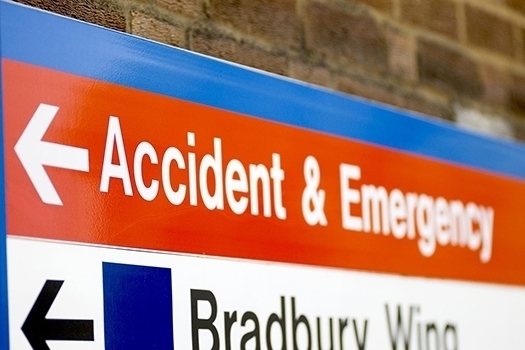People in deprived areas twice as likely to visit A&E, show data

Those living in the most deprived areas of England are almost twice as likely to visit A&E than people in the least deprived, new NHS Digital data shows.
The Hospital Accident and Emergency Activity 2019/20 shows that there were almost twice as many attendances to A&E departments in England for the 10% of the population living in the most deprived areas (3.1m people), compared with the least deprived 10% (1.6m) in 2019-20.
The report also shows that attendances for the 20% of the population living in the most deprived areas accounted for 27% of all A&E attendances (5.9m).
Other key points included:
- The number of reattendances to A&E within seven days was 1.95m (8.7% of all reported attendances).
- Patients arriving from 8am to 10am generally spent the shortest time in A&E, with 16% of patients arriving between 8am and 8:59am spending one hour or less, and 85% of arrivals between 9am and 9:59am spending four hours or less.
- Of all attendances in 2019/2020, 2.3% (520,000) of all attendances spent more than 12 hours in A&E, compared with 1.5% (333,000) in 2018/19.
- Monday is the busiest day of the week, accounting for 16% of all attendances during 2019-20 (3.63m attendances).The most popular time of arrival on a Monday is between 10am and midday, equating to 15.2% of attendances on this day (552,000 attendances).
The Monthly Trust Situation Reports also show a 1% increase in attendances to A&E during 2019/20 (25.0m). In the 2018/19 period, this was 24.8m, while there has also been a 17% increase since 2010/11, when the figure stood at 21.4m.
On average, attendances have risen by 2% per year since 2008/09. However, the population of England has only grown by an average of 1% per year over a similar period.
NHS England and NHS Improvement also contributed to today’s report, which incorporates attendances from all types of A&E departments, including minor injury and walk-in centres.
Poverty and deprivation have also been discussed as factors that worsen outcomes of Covid-19.
It comes amid heightened concerns about how the NHS will cope this winter, with the added burdens of Covid and the flu season. Last year, before the Covid pandemic began, saw A&E departments suffer their worst waiting times since current records began.
NHS England also wants patients to book into a slot via NHS 111 before attending A&E this winter. However, it will not stop patients from turning up without calling ahead.
Meanwhile, its most recent performance data shows that almost half of people referred for treatment on the health service are waiting more than 18 weeks to be seen.
Earlier in the summer, GPs came together to defend themselves against the accusation made in a live Government briefing that they have spent the course of the pandemic ‘referring large numbers to A&E’.
Pulse voluntary donation scheme
Since the outbreak of this pandemic, Pulse has strived to support you, whether it be through our resources page, our ‘Clinical Crises’ series, holding policymakers to account with exclusives such as practices being supplied with faulty masks, or GPs being told to stop routine services in the hardest hit areas.
However, good journalism cannot be done on the cheap and, like the whole publishing industry, we have been affected by the economic slowdown. We also strongly believe the content we produce should remain free as we feel it is essential for you. Because of this, we have set up a voluntary donation scheme. There is no compulsion whatsoever to donate. But if you feel we are helping you, and you would like to support us, anything you can spare would be greatly appreciated. Read more here.









